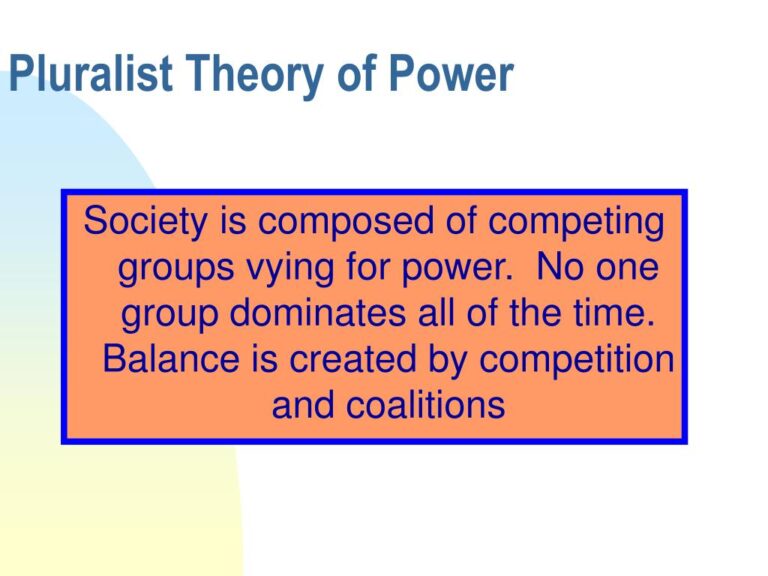
UPSC SOCIOLOGY Syllabus :
Paper 1 – Chapter 6 – Politics and Society:
(a) Sociological theories of power
(b) Power elite, bureaucracy, pressure groups, and political parties.
(c) Nation, state, citizenship, democracy, civil society, ideology.
(d) Protest, agitation, social movements, collective action, revolution
- Pluralists (Pluralist thesis) have challenged the main elitist contention that a society is marked by the existence of a single centre of political power.
- It is in contrast to elite and Marxist theorists who argue that power is concentrated in hands of a few.
- This theory is a bid to explain the power distribution in modern democracies, especially Western democracies.
PLURALIST MODEL
- The pluralist model indicates that power is distributed among many groups.
- These groups may include coalitions of like-minded people, unions, professional associations and business lobbyists.
- The percentages of average people that make up these groups are small, so in theory, the public acts as bystanders in the pluralist model of power.
The pluralists believe that: - Power is dispersed and fragmented.
- Groups provide a more effective means of representation.
- The larger the group the more influence it will have.
- Policies are established through bargaining and compromise and tend to be fair to all in the end.
THINKERS’ VIEWS
- In his empirical study ‘Who Governs?’ Robert Dahl found that local politics is a business of bargaining and compromise with no single group dominating decision making.
- Arnold M Rose in his ‘The Power Structure, 1967’ also echoes similar views as Dahl’s and gives a ‘multiple influence hypothesis’. He goes one step further and argues that economic and political elite don’t work hand in glove as proposed by Mills.
- Karl Mannheim argues that though a policy may be seemingly formed by the purported elite, but in a democracy there are various pulls and pressures that actually shape a policy.
- According to Anthony Downs in his ‘Economic Theory of Democracy’ as the producers and consumers defend their interests in market, trade unions, associations etc play similar roles in politics to defend the interests of their members and workers.
CRITICISM
- Pluralists are accused of ignoring non-decision and safe decision making.
- Elite concede to only those demands which do not threaten their position and retain the power in those decisions which threaten their interests.
- They also ignore results and consequences as according to Westergaard and Resler, power is manifested in its consequences.
- As Roberto Michels highlights, representatives of people may ultimately usurp power and act in their own vested interests ignoring interests of public at large.

